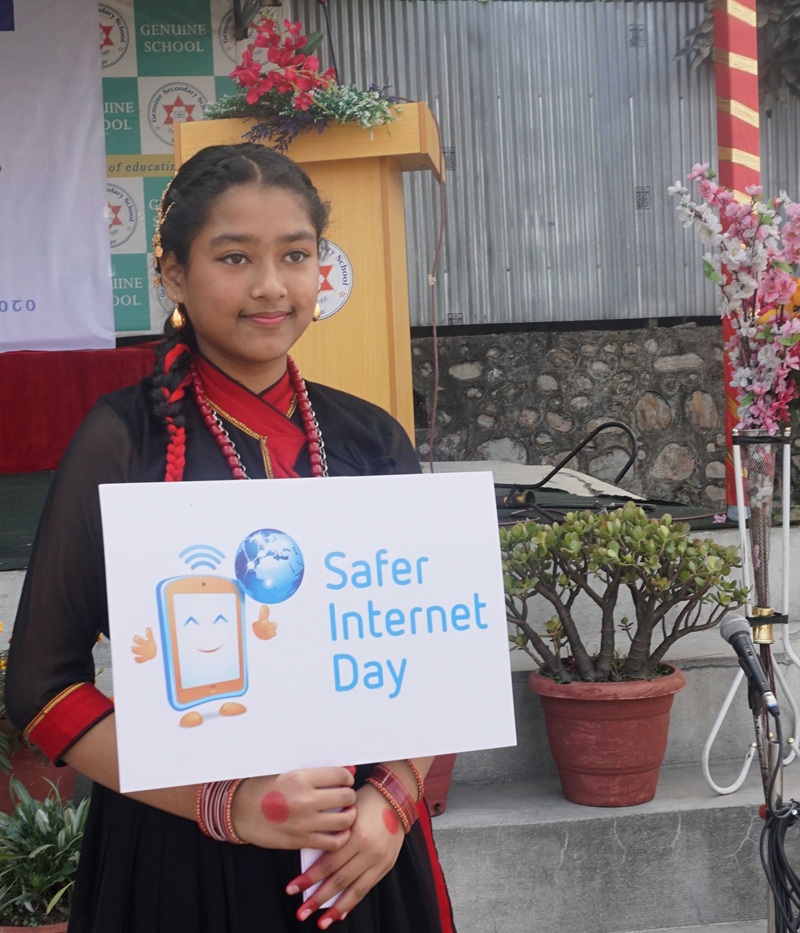Frequently Asked Questions (FAQ), Digital Signature In Nepal
Q.1 What is a Digital Signature Certificate (DSC)?
A digital signature certificate is an electronic form of signature which serves as proof and validates the document, information which cannot be re-writable by others then the sender.
Q.2 Why we need a Digital Signature Certificate (DSC)?
Digital signature certificate electronically helps us authenticate our identity and provide security for e-transactions. The certification helps us to encrypt our messages while only the intended recipient can read it and digitally sign the information to assure the data has not been changed in transit.
Q.3 Where can we use the Digital Signature Certificate (DSC)?
Digital Signature Certificate can be used for sending and receiving the message, document, information by digitally signing and encrypting it. The digital signature certificate helps to carry out e-transactions like e-mail, e-commerce, e-banking and e-governance in high security and documents approving in MS Word, PDFs, MS Excel, and MS Outlook.
Q.4 How does a Digital Signature Certificate (DSC) work?
Digital Signature Certificate associates the device /individual’s identity with two keys- Public key and Private key.T these keys are used by the browsers and servers to encrypt and decry-pt the message/information where the keys will not work in the absence of other. The private key is stored in the user’s hard disk or USB Token and is controlled with the issued password whereas the public key is sent with the encrypted message to the message receiver.
Q.5 Is Digital Signature Certificate (DCS) valid in Nepal?
As per the Electronic Transaction Act 2063, Digital Signature & Certificate (DSC) are legally valid in Nepal. Digital Signature & Certificate (DSC) are issued by licensed Certifying Authorities (CA) under the Ministry of Science, Technology, and Environment and Government of Nepal.
Q.6 What does X509 refer to as it relates to digital certificates?
X509 is an industry standard for digital certificate format and assumes a hierarchical system of Certificate Authorities (CAs) for issuing certificates.
Q.7 Why does a Digital Signature Certificate (DSC) have a limited validity period?
A digital signature certificate has a start date and an end date usually validated for the period of one or two years. The expiration date is used for managing the Certificate Revocation List (CRL), the certificate is naturally removed from the revocation list when its expiry date arrives.
Q.8 What is a root certificate and why we need it?
A root certificate is a part of a public key infrastructure scheme. It is an unsigned public key certificate or self-signed public key certificate that identifies the Root Certifying Authority (CA). Digital documents are verified using a chain of trust whose trust anchor is the Root Certifying Authority (CA).
Q.9 Can a person have two digital signature?
Yes, an individual can have two digital signature one for the official use and another for their personal use.
Q.10 What are the different classes of Digital Signature Certificates?
There are three classes of certificates issued they are given below as:
Class 1 Certificates:
This shall be issued for both the business personnel and private individuals use. It confirm the information in the application provided by the subscriber does not conflict with the information in well recognized consumer database.
Class 2 Certificates:
This will be issued for both business personnel and private individuals use. It will confirm that the information in the application provided by the subscriber does not conflict with the information in well- recognized consumer databases.
Class 3 Certificates:
This will be issued to individuals as well as organizations. As these are high assurance certificates, primarily intended for e-commerce applications, they shall be issued to individuals only on their personal appearance before the Certifying Authorities.







